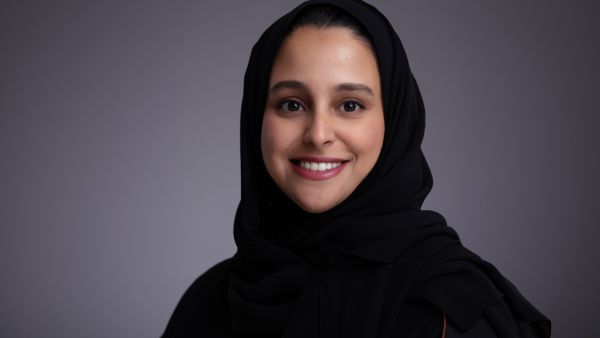Reclaiming Narratives: How Dr. Maryam Alsada is Transforming How We Study Gulf Women’s Histories

As an alumna and Postdoctoral Fellow at Georgetown University in Qatar (GU-Q), Dr. Maryam Mohamed Alsada is charting a course at the intersection of rigorous academic inquiry and grounded community engagement. Her summer course, Documenting Gulf Women invites students to critically examine the politics of knowledge production—asking how the lives of Gulf women can be documented through more ethical, culturally grounded, and imaginative methodologies.
For rising senior Ftaim Alqahtani, who took the course for her minor in history, it was a chance to connect to discussions that traditionally center Western women’s experiences. “I fell in love with history through taking classes at GU-Q, but I had felt excluded from theoretical discussions about womanhood,” said Ftaim, adding: “Taking this course from someone who understands the unique experiences of women in the region far exceeded my expectations.”
Designed as a seminar with immersive, site-based learning, Documenting Gulf Women integrates literary texts, historical scholarship, visual art, and film with field visits and guest speakers.
Rooted in Dr. Alsada’s doctoral research investigating Gulf women’s lived experiences during the pearl diving and early oil eras, the course teaches students to draw on oral histories, archival materials, and embodied memory to offer nuanced readings of Gulf history from the ground up. It is a methodology she employed for her University College London dissertation, titled “The Lives of Girls and Women in Bahrain and Qatar,” which explores women’s agency and social labor across shifting political and economic landscapes.
“Gulf women have always had voices,” said Dr. Alsada. “Our task as scholars is to interrogate the structures that have filtered, silenced, or misrepresented them—and to find methodologies that center their ways of knowing.”
The seminar culminated in a student showcase of original documentation projects. Drawing on both primary and secondary sources, students presented creative works that captured the lives of Gulf women through oral histories, mini-podcasts, visual storytelling, and curated exhibits. Each project engaged critically with the politics of visibility, authorship, and historical preservation.
Ftaim’s project examined the contributions of her grandmother, Asma al-Neama, to the development of Qatar’s educational system. “I learned that academic work can begin with love and still be rigorous,” she said. “The course taught me how historical recovery can be a form of care, particularly when conducted using oral histories and feminist methods that prioritise lived experience. It showed how storytelling can resist erasure and question which voices are considered worthy of documentation.”
As an alumna, anthropologist, and educator, Dr. Maryam Alsada embodies Georgetown’s commitment to academic excellence and social responsibility. Her work, informed by her own educational journey, not only highlights underrepresented narratives but empowers students to become keepers of history in their own right.
A firm believer in student-centered learning and place-based pedagogy, Dr. Alsada sees teaching as a form of both scholarship and stewardship. “I want my students to feel rooted in their histories—not just as observers, but as participants in shaping how those histories are told.”
Background Information
Georgetown University in Qatar
Established in 1789 in Washington, DC, Georgetown University is one of the world’s leading academic and research institutions. Georgetown University in Qatar (GU-Q), founded in 2005 in partnership with Qatar Foundation, seeks to build upon the world-class reputation of the university through education, research, and service. Inspired by the university’s mission of promoting intellectual, ethical, and spiritual understanding, GU-Q aims to advance knowledge and provide students and the community with a holistic educational experience that produces global citizens committed to the service of humankind.
Located in Doha’s Education City, GU-Q offers the same internationally recognized Bachelor of Science in Foreign Service degree as Georgetown’s Capitol Campus in Washington, DC. This unique, interdisciplinary program prepares students to tackle the most important and pressing global issues by helping them develop critical thinking, analytic, and communication skills within an international context. GU-Q alumni work in leading local and international organizations across industries ranging from finance to energy, education, and media. The Qatar campus also serves as a residency and delivery location for the Executive Master’s in Emergency and Disaster Management along with the Executive Master’s in Leadership.






